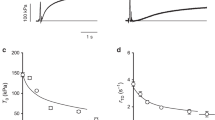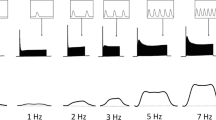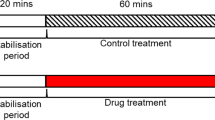Abstract
IT was reported earlier1 that insulin increases the uptake of glucose by the isolated rat diaphragm only in the presence of moderate amounts of certain metallic ions, such as sodium, potassium, rubidium, caesium and magnesium. The present communication reports the results of some further experiments which stress the importance of the magnesium ion with respect to the insulin-sensitivity of the rat diaphragm.
This is a preview of subscription content, access via your institution
Access options
Subscribe to this journal
Receive 51 print issues and online access
$199.00 per year
only $3.90 per issue
Buy this article
- Purchase on Springer Link
- Instant access to full article PDF
Prices may be subject to local taxes which are calculated during checkout
Similar content being viewed by others
References
Bhattacharya, G., Nature, 183, 324 (1959).
Gey, G. O., and Gey, M. K., Amer. J. Cancer, 27, 45 (1936).
Author information
Authors and Affiliations
Rights and permissions
About this article
Cite this article
BHATTACHARYA, G. Role of Magnesium in the Insulin-Sensitivity of the Rat Diaphragm in vitro . Nature 184, 1401–1402 (1959). https://doi.org/10.1038/1841401b0
Issue Date:
DOI: https://doi.org/10.1038/1841401b0
This article is cited by
Comments
By submitting a comment you agree to abide by our Terms and Community Guidelines. If you find something abusive or that does not comply with our terms or guidelines please flag it as inappropriate.



